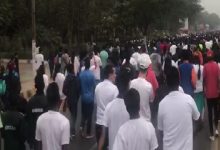Supreme Court dismisses petition against system of designating ‘senior advocates’

The Supreme Court on Monday dismissed a petition challenging the senior advocate designation system, terming it a “misadventure” by the petitioners.”The system of designation cannot be said to be untenable and against Article 14. It is not arbitrary or unreasonable. We have not the slightest hesitation to say that the plea is a misadventure at the behest of the petitioner number 1 (Mathews Nedumpara). It’s the latest in his line of misadventures with earlier orders appearing to have no bearing,” a Bench led by Justice Sanjay Kishan Kaul said.Section 16 of the Advocates Act, 1961 says, “There shall be two classes of advocates, namely, senior advocates and other advocates” and provides for the Supreme Court and high courts to confer ‘senior’ designation.Section 23 (5) of the Act says senior advocates shall have pre-audience over other lawyers and their right of pre-audience inter se shall be determined by their respective seniority.The Bench – which also included Justice Subhas Dhulia and Justice CT Ravikumar – upheld the validity of both Section 16 and Section 23(5) of the Advocates Act, 1961.Terming the petition as “the latest in the line of misadventures” by Nedumpara — one of the petitioners, the Bench dismissed it.The top court had on March 27, 2019 awarded three-month jail to Nedumpara in a contempt case but kept the sentence suspended, if he refrained from browbeating judges. After holding him guilty of contempt earlier, it had debarred him from practising before the Supreme Court for a year.Besides Nedumpara, the other petitioners were Rohini Mohit Amin, Maria Nedumpara, Rajesh Vishnu Adrekar, Hemali Suresh Kurne, Sharad Vusudeo Koli, Karan Kaushik and Manisha Nimesh Mehta.Alleging that it created a special class of advocates with special rights, privileges and status not available to ordinary advocates, the petitioners had challenged the senior designation system as unconstitutional for violating the right to equality guaranteed under Article 14 of the Constitution.They contended that the practice of designating seniors by the Supreme Court and high courts violated the right to practise a profession under Article 19 (1)(g) and the right to life under Article 21 of the Constitution.
It resulted in the legal industry being monopolised by a “small cabal” of designated advocates, leaving the vast majority of meritorious lawyers as “ordinary plebeians” meting out a discriminatory treatment, the petitioners alleged.















